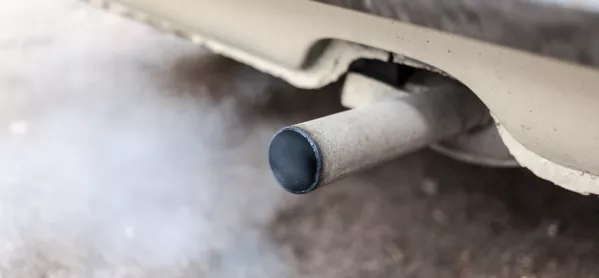In days of yore, it was perfectly acceptable to throw a bucket of excrement out of a second storey window onto the heads of peasants below. It was deemed quite normal to wade through dung on the way to the shops and to breathe in the stench of cesspools on an ordinary walk to work.
In modern Britain this is thankfully now a thing of the past. Somehow, when things eventually became intolerable, civilisation managed to get on top of the problem of sewage. It took centuries longer than it should have done (given that the Romans had proved the technology was actually fairly simple), but no one really bothered disrupting the status quo for a many centuries. If a problem is not literally biting your leg off or leading your children to starve, it is pretty easy for the authorities to ignore (see: the mental health crisis).
The problem of air pollution, in particular around schools in industrial cities such as London and Birmingham, is one such situation. In most cases it is only slowly, imperceptibly destroying our children’s health, so the problem is simply not being tackled. Its victims are also disproportionately poor, and the damage done by nitrogen dioxide, particulates and other toxic pollutants is often masked by other health problems that go hand in hand with poverty.
Research commissioned by London’s mayor Sadiq Khan last week revealed that 802 schools, nurseries and colleges in the capital measured nitrogen dioxide levels that breached EU limits, with many vastly exceeding them. Of course, once Brexit has occurred, the government will be able to recalibrate these pollution goalposts to wherever it suits, but for now, Britain is a pollution blackspot.
I have argued with people on social media who say that there are bigger problems to tackle: why worry about a few exhaust fumes when children are being abused in their own homes or thousands are failing to secure the basic qualifications to secure worthwhile jobs?
This attitude has led those with an interest in maintaining the status quo to say that the fight against air pollution has become a “middle class issue”: a cause taken up by wishy washy liberals who don’t have anything else to worry about except where they last put their organic fairtrade bicycle pump.
I can assure you this is the opposite of a middle class issue. It is an issue for everyone that contributes to 9,500 early deaths in London every year, according to the British Lung Foundation.
If I was a headteacher or principal of any of these schools and colleges with high levels of toxic pollutants I would be furious and demanding change from government. Schools in fresher parts should rise up in solidarity.
I know there is not much a school could do on its own and as cuts bite heads may have more pressing priorities. But pressure from heads’ unions could have an impact, and their voices should join the growing clamour for change.
Already 100 heads have signed a letter co-ordinated by Greenpeace to call for ministers to act, but more should join in the call.
It has been suggested that schools should take interim measures such as planting strategic trees and bushes to reduce pollution on site, but these measures are surely only a sticking plaster.
As the world becomes totally wrapped up in the effect of economic cuts, Brexit and Trump we really need to focus on what kind of world our children will emerge into when they leave education. Ministers might (privately) argue that the social mobility agenda will allow young people to flee their polluted neighbourhoods for leafier, fresher suburbs. But how can this be seen as any kind of solution?
How come, in a world of high-tech virtual reality flipped learning classrooms we cannot provide something as simple as reasonably fresh air for our children to breathe?
Irena Barker is a writer and mother of three children, two of whom are at primary school
Want to keep up with the latest education news and opinion? Follow TES on Twitter and like TES on Facebook




